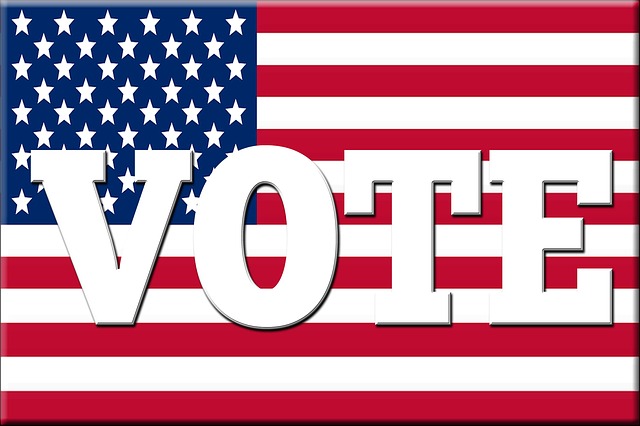
Another Preliminary Injunction in OMB Memorandum (M-25-13) Litigation
03.12.2025 | Linda J. Rosenthal, JD

It’s that time again.
No, not summer vacation.
It’s election season in the United States. Actually, election season seems to begin the morning after the last election. With each passing week, the airwaves become more and more saturated with annoying political ads, culminating in the non-stop coverage in early November. And everyone has an opinion.
But what’s important to remember is that a 501(c)(3) organization isn’t allowed to express an opinion taking a position one way or another on a candidate for elective office – or otherwise participate in certain types of so-called “electioneering” activities.
What can happen if it does? That organization may lose its tax exemption and or, at the least, be liable (along with its officers and directors) for large penalty-type excise taxes.
The rule prohibiting political activity by a 501(c)(3) organization is contained in a short phrase – fewer than 30 words.
That language is tacked on at the end of a brief paragraph (not much over about 125 words total) in the federal tax code. More precisely, that highly consequential paragraph is section 501(c)(3) of the Internal Revenue Code of 1954, comprising the full and official statutory definition of which nonprofits are eligible for the most favored tax-exempt status.
Unless you’re a lawyer or accountant — and in particular, one who specializes in nonprofit organizations — you’ve probably never sat down and read section 501(c)(3). Or if you’ve read it, it was a long time ago and you don’t remember it well. But, this being the source of everything that governs most “charitable” organizations’ tax exemptions, it’s worth taking about 30 seconds to look at these all-important words.
The full text section 501(c)(3) reads: “Corporations, and any community chest, fund, or foundation, organized and operated exclusively for religious, charitable, scientific, testing for public safety, literary, or educational purposes, or to foster national or international amateur sports competition (but only if no part of its activities involve the provision of athletic facilities or equipment), or for the prevention of cruelty to children or animals, no part of the net earnings of which inures to the benefit of any private shareholder or individual, no substantial part of the activities of which is carrying on propaganda, or otherwise attempting, to influence legislation (except as otherwise provided in subsection (h)), and which does not participate in, or intervene in (including the publishing or distributing of statements), any political campaign on behalf of (or in opposition to) any candidate for public office.” (bolding and italics added)
The italicized phrase now includes four words – “or in opposition to” – that were added in the 1980’s to clarify that prohibited electioneering includes activities by organizations either supporting or opposing a candidate.
The gist of this eligibility definition is that an organization qualifies if it is “organized and operated exclusively” for one or more of the listed purposes in the main body of the paragraph. But an (otherwise eligible) applicant will be disqualified if:
It’s that third prong that keeps anyone and everyone connected with a 501(c)(3) organization wide awake at night in a cold sweat all election season long. And, of course, it’s always election season, so ….”
An organization engages in disqualifying “political campaign” activity if:
1. It’s participating or intervening in a campaign;
2. The campaign is for an individual who is a candidate;
and
3. The election is one for public office.
Sounds simple? No, it’s not.
And determining whether a particular 501(c)(3) organization is violating this rule is a matter of looking at all the facts and circumstances for a “thorough understanding of the facts relating to an activity.” Each element of this three-part analysis of the “political campaign” prohibition has been the subject of IRS regulations , rulings like this one, and court decisions over many decades.
It’s complicated. And the consequences of getting it wrong are severe. So if your organization is considering plunging into the political fray even a little bit: Just stop. Treat it like a red light at an intersection. Don’t even think about starting up and rolling down that road unless and until you get a clear green light from a legal or tax professional.
It’s true that what’s prohibited is absolutely, positively, not allowed. But, as with most things in life, there are a few important exceptions.
First, the political activity prohibition applies when an organization jumps in on one side or another of the election. It doesn’t apply, though, where the organization engages in truly nonpartisan voter education or registration activities.
Second, it’s important to remember that the prohibition applies to the organization, and to its personnel while they are “on the clock.” But the individuals connected with the organization — even founders, directors, and key employees — have a First Amendment right to be involved in political activities and to voice personal opinions on elections and candidates. This, however, can be a treacherous tightrope act: These people must take care to act on their own time and to carefully disassociate these activities and opinions from the organization itself
This all-important “no electioneering” ban is commonly referred to by the American public as “the Johnson Amendment.”
Why? That’s another story for a later post but – in a nutshell – at the eleventh-hour maneuvering in voting on the monumental overhaul of the federal tax in 1954, then-Senate Majority Leader Lyndon B. Johnson proposed (and insisted on, without debate or discussion) adding this fateful language to the end of the new section 501(c)(3).
It’s quite a tale! Stay tuned.
— Linda J. Rosenthal, J.D., FPLG Information & Research Director
